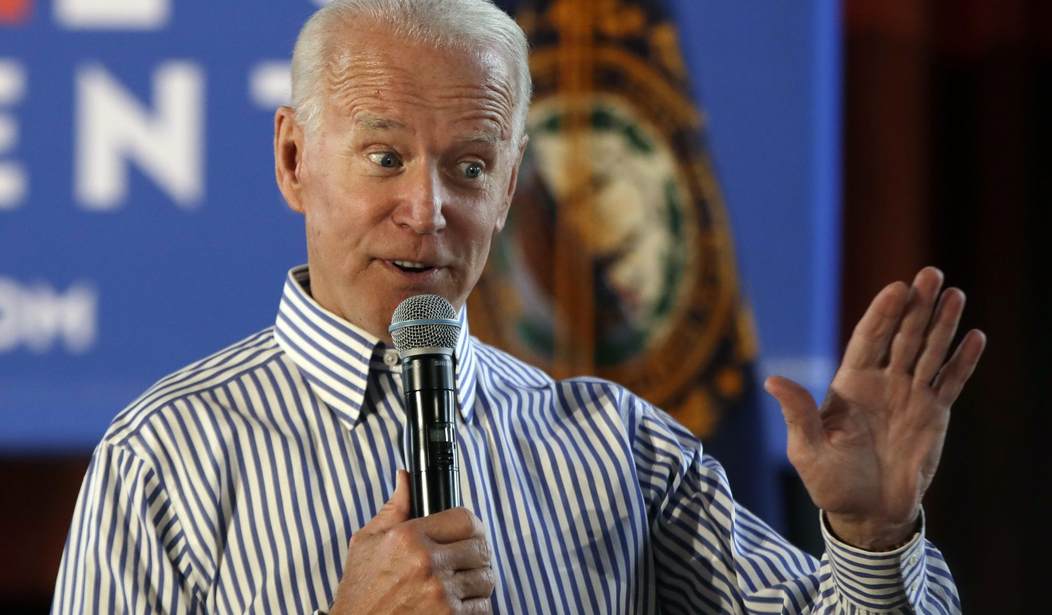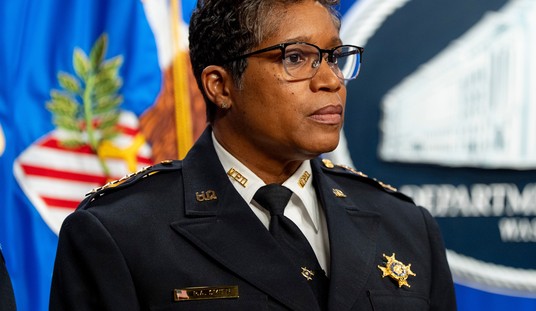Two Pinocchios. That’s what Washington Post fact-checker Salvador Rizzo figured Joe Biden’s claim was worth, that the former Veep was personally “responsible” for getting 150,000 combat troops out of Iraq.
At last month’s Democratic debate you might recall (I drunkblogged two consecutive nights of it and don’t recall much), Biden claimed, “I made sure the president turned to me and said, ‘Joe, get our combat troops out of Iraq.’ I was responsible for getting 150,000 combat troops out of Iraq, and my son was one of them.”
I can’t be the only one picturing a slightly confused Vice President Biden then picking up the phone and saying, “Hello, U-Haul? This is the Vice President. I need 30,000 moving vans, and… [sees where Iraq is on the map] uh… the Love Boat.”
But back to our story.
Last week, Biden was at it again, telling supporters at a campaign stop in Iowa, “When I was vice president, the president gave me all the easy jobs, like ‘take care of getting all our troops out of Iraq,’ which we did.”
Easy? Sure, when you have U-Haul and Captain Stubing doing all the heavy lifting.
Even so, Rizzo found a few complications in “Biden’s neatly wrapped-up story,” which gives the impression that early in Obama’s administration, Biden was given the mandate to pull our troops out of Iraq, and then did so.
But that’s not what happened.
In 2008, President Bush had made a temporary Status of Forces Agreement with the Iraqi government, “with the expectation that the next president would seek an extension that after 2011 would leave in place 40,000 service members for training and logistics.” But Obama more or less sabotaged the negotiations on the followup agreement. Obama allowed the talks to stall on the single issue of legal immunity for U.S. troops in Iraq, claiming that “there was no support in the Iraqi parliament for that.” Immunity is boilerplate stuff, standard issue for our troops in Europe, Korea, Japan, etc, but the Obama Administration refused to press it. In fact, immunity could have been made part of an executive codicil not subject to the whims of the Iraqi parliament.
But Obama wanted out before his reelection campaign, and sabotaging the Status of Forces Agreement was a underhanded way to get just that. Biden however, Rizzo reports, was “apparently was one of the officials arguing to keep troops in Iraq,” but eventually came along to Obama’s position.
Rizzo continues:
“Biden also supported a continued U.S. military presence, although he appeared to prefer low numbers,” Jeffrey, the former ambassador, wrote in Foreign Policy magazine. “But when White House officials got cold feet about the effort to extend troops and levied unattainable demands on the Iraqi leadership, Biden weighed in for not letting the perfect be the enemy of the good. But, once a decision was made, he would loyally stand by it and support people in the field — unlike some in the Obama White House.”
It’s hard to square that recollection from Jeffrey with Biden’s at the June 28 debate: “I made sure the president turned to me and said, ‘Joe, get our combat troops out of Iraq.’ ” Biden’s advisers said there was going to be a drawdown of U.S. forces no matter what in 2011, and the questions then were about the size of the residual force.
Maybe Biden wanted to keep the troops there to help split Iraq in three, a position he advocated in 2006 — before claiming he hadn’t. And that of course was just a few years after Biden cast an influential vote in favor of the Iraq War, a decision he claimed last week that Bush somehow tricked him into making.
ASIDE: John Kerry would make a similar claim in 2004, that Bush only wanted an use-of-force authorization for the purpose of intimidating Saddam Hussein. But giving a president an authorization like that, and then acting surprised when he uses it, strains credulity. It’s like baking a batch of chocolate chip cookies, telling your kids the cookie jar is full, and then being shocked, shocked to discover little hands reaching inside.
Biden was there, too, in Obama’s second term when POTUS ordered thousands of troops back to Iraq to try and save the country from ISIS in the wake of Obama’s drawdown. Rizzo says, “it’s puzzling to see him leave that out of his remarks on the campaign trail and in the debate.” But is it, is it really?
The fact is that over the course of 17 years, Biden has been all over the place on Iraq, mostly blowing with the shifting winds. Biden was for the Iraq War when it was popular, against it when it wasn’t, boasted about doing what Obama wanted (while conveniently forgetting his own misgivings), leaves out the embarrassing bits about ISIS, and now claims he was both Bush’s dupe and Obama’s right hand.
Whatever your position is on Iraq, now or then, if you’re looking for decisive foreign policy leadership, you had best look somewhere other than Joe Biden.










Join the conversation as a VIP Member